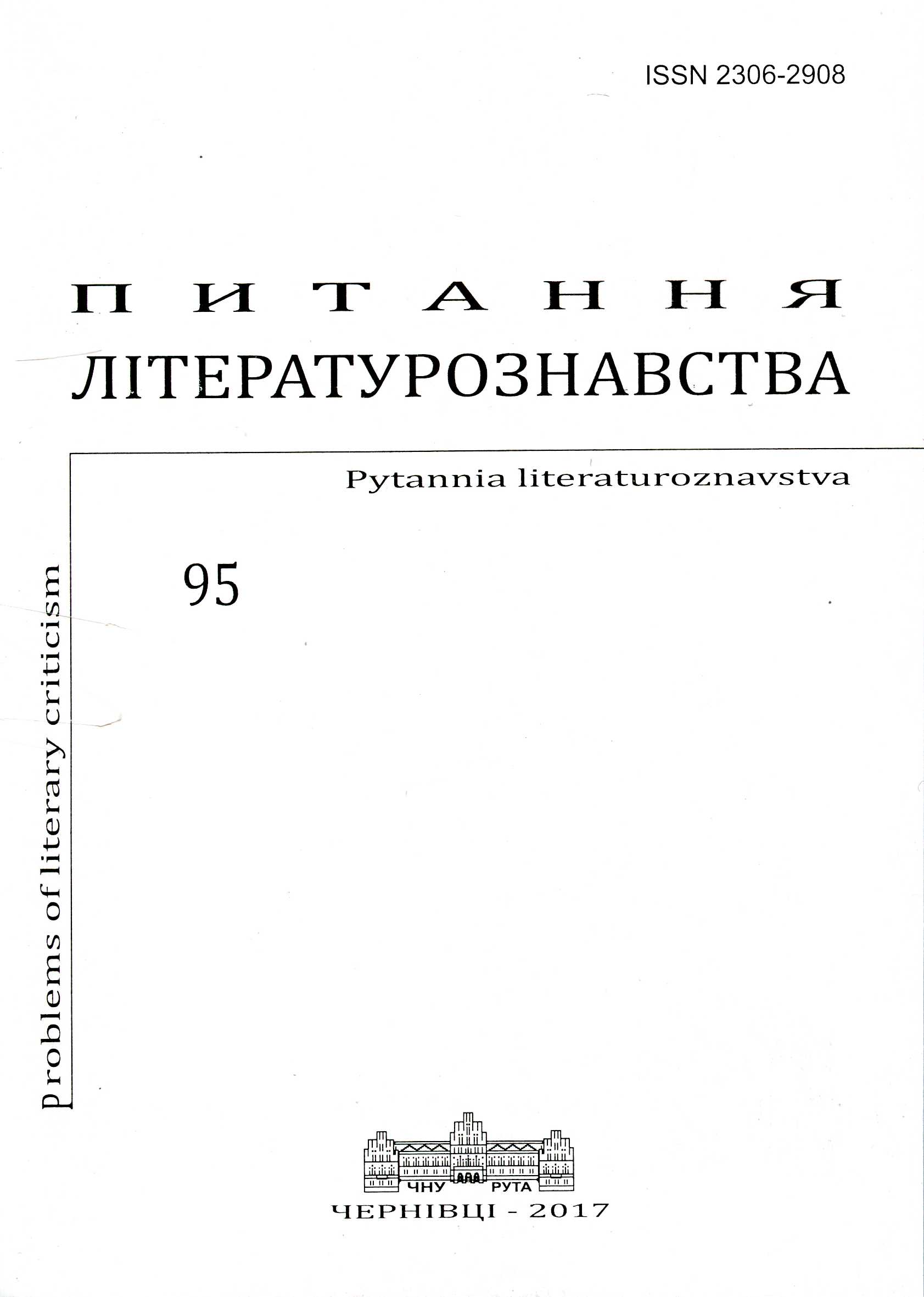Творча репліка Л. Толстого до М. Костомарова в жанрі мідквел
The Creative Replica of L. Tolstoy to M. Kostomarov in the Genre of Midquel
Author(s): Inna VolkovynskaSubject(s): Language and Literature Studies, Studies of Literature, Comparative Study of Literature, Russian Literature, Ukrainian Literature
Published by: Чернівецький національний університет імені Юрія Федьковича
Keywords: genre; intertextuality; midquel; supertext; M. Kostomarov; L. Tolstoy;
Summary/Abstract: The article is devoted to an actual problem of genres in perspective of supertext relations. In particular, the functionalities of midquel as one of the genres based on intertextual relations are regarded. The subjects of the study were features of interaction of midquel texts of L. Tolstoy “The End of the Little Russian legend "Forty years", published by M. Kostomarov in 1881” and its pretext – stories by M. Kostomarov “Forty Years”. Deep philosophical and theological questions in unison with spiritual and creative pursuits of the Russian classic are considered through the grid of raised moral and ethical problems in the story of M. Kostomarov. The motif of punishment, which takes a key place in the story “Forty Years” of M. Kostomarov, is embodied through the loss of God by a man, leading to his moral decay. The lack of faith creates emptiness and spiritual blindness. Punishment is unnoticed for a man in this life. Tolstoy interprets the motif of punishment, he puts new meanings, entering with the author of pretext into polemics. In the interpretation of Tolstoy the lack of faith raises no emptiness but the feelings of constant fear and loneliness. Thus, awareness of punishment comes to a man in this life. The motif of punishment is combined with the motif of insight that opens a person who has lost God. So the pretext of M. Kostomarov “Forty Years” and the midquel of L. Tolstoy “The End of the Little Russian legend "Forty years", published by M. Kostomarov in 1881” are based on the same philosophical grounds, but have different ideological orientation. The problem of God's punishment is solved by writers in different ways, and their texts form a dilogy, which aims to demonstrate ambiguity and unpredictability of the laws of human being and to give the reader a space for reflection and research.
Journal: Питання літературознавства
- Issue Year: 2017
- Issue No: 95
- Page Range: 78-89
- Page Count: 12
- Language: Ukrainian

